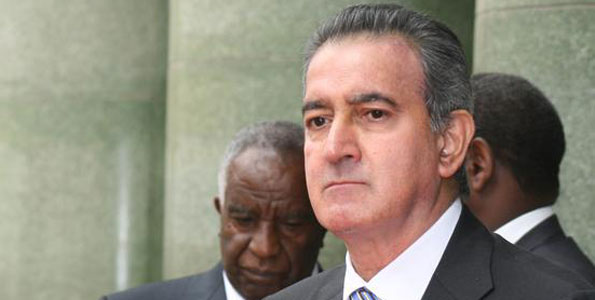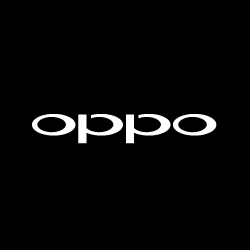The following feature was first published in the Business Daily.
The big man’s black Mercedes S600 — with the vanity licence plate ‘BA1’ — has not been seen in weeks making the dash from his home in Curepipe to the SSR International airport at one end of Mauritius or Port Louis at the other.
Read More: Britam re-posts lower net profits after exit of ‘Ponzi’ directors
Dawood Rawat, whose friendship with the country’s previous Prime Minister has been described by a current Cabinet minister as “toxic”, is on the run.
Once chairman emeritus of the British American group of companies, he is now a fugitive accused of profiting from an elaborate scheme to cook the books at BAI Co (Mauritius) that saw liabilities played down and assets overvalued.
[dropcap] ITS TIME TO TRY SOMETHING NEW[/dropcap]
While Mauritian authorities concede some of the former Britam director’s companies were clearly in trouble, it wasn’t until his failure to make a cash injection led to Bramer Bank’s suspension that a crisis was touched off, revealing the true extent of his deception.
“We found there was a huge fraud case,” Financial Services, Good Governance and Institutional Reform minister Roshi Bhadain said.
“Policyholders money which had come into the insurance company had been passed out through various subsidiaries in Mauritius. Some of the funds taken (from) new investors were being used to repay old ones and the interest rates that they were giving were high, in some cases going up to 10, 12 and even 14 per cent (well above the average of three to four per cent). It had all the hallmarks of what is commonly referred to as a Ponzi scheme.”
According to a confidential report from the firm’s conservators, as at December 31 last year, BAI Co (Mauritius) Ltd’s assets were “substantially overvalued” at 33.6 billion rupees (Sh89 billion) and were only worth about Rs17.2 billion (Sh45 billion).
The total liabilities, estimated at Rs26 billion by BAI, were worked out to be Rs28 billion (Sh74 billion). Of this, Rs23 billion (Sh61 billion) were the result of the controversial single-premium schemes that government officials say was being run like a Ponzi scheme, using new investors’ money to pay off old ones.
The value of key subsidiaries like Iframac, Courts and the Apollo Bramwell Hospital were also revised downwards with by the conservators.
As a result the firm was not in a position to meet its obligations, even if it had not lost Rs6 billion (Sh15 billion) loaned to Bramer Bank when the liquidity crisis led to the loss of the bank’s licence.
The interim document, BAI Co (Mauritius) conservator André Bonieux says, shows a clear trail of bad investments through subsidiaries involved in everything from car dealerships to a private hospital. Britam, the 4.5 billion rupee (about Sh13 billion) “jewel in the crown”, stands in contrast to distressed assets like Iframac and the Apollo Bramwell Hospital.
BAI Co also has a profitable toehold in Equity Bank and Housing Finance through its Kenyan investment vehicle.
“The main problem was the underperformance of BAI’s subsidiaries,” said Mr Bonieux, listing the largest “distressed” investments as Iframac, the Apollo Bramwell Hospital and Bramer Bank. “And, of course, some of the insurance products they were selling were (being offered) at too high a rate.”
Under Mauritius law, insurance firms are barred from investing more than ten per cent of their assets in related parties. But as at December 31 last year, BAI Co (Mauritius) had 58 per cent of its assets tied up in struggling related firms. This was down from a high of 85 per cent in 2009.
The company’s regular insurance products — such as its various life cover, education and pension schemes held by some 135,000 people — were okay.
The poison lay in three single-premium investment products, the most popular of which was called Super Cash Back Gold and offered unsustainable annual returns of up to 14 per cent. The involvement of Rawat relatives in the management of many of these subsidiaries, as well as other holding companies, is also a red flag.
Seaton Investments, BAI (Mauritius) Ltd’s loss-making holding company, was headed by Mr Dawood Rawat’s daughter, Adeela-Feistritzer Rawat. Its board was stacked with male relatives with the only person not a blood relation being Adeela’s husband Claudio Feistritzer.
Adeela’s sister Laina headed a division at BAI, and the failing Apollo Bramwell Hospital was headed by their sister-in-law, Valerie Rawat. (BAI’s ultimate holding company, Bahamas registered KLAD Investment, is named for family members Kerima, Laina, Adeela and Dawood.)
The path to recovering from this crisis almost certainly involves selling the best-performing assets — in this case Britam.
“We have to make sure serious bidders come to the table. There must be a proper bidding process,” Mr Bonieux said. “I’d certainly like to do that with full transparency for BAI policyholders and management (and shareholders) in Britam. It has to be planned. There is no rush. But, having said that, I don’t think there is a strategy to keep Britam for a very long time.”
Bhadain, whose relatively new Ministry champions good governance, says the crisis and Mauritius’ response are an opportunity for change.
“Fraud happens,” he said, citing Enron and Lehman Brothers in the United States, and BCCI, the Maxwell Affair and Polly Peck in the United Kingdom. “It has been dealt with swiftly.
“The Finance Minister decided the National Commercial Bank was going to take everything on board and safeguard the interests of (Bramer Bank’s) depositors and employees. We reassured (BAI’s 135,000) regular policyholders that the government is going to secure their policies. Then we started a massive exercise to understand what had happened, who was responsible and why it happened.”
The result was a decision to fire the chief executive of the Financial Services Commission, the head of the Financial Reporting Council, and a ten-person national committee on corporate governance.
“The name of the game is to learn from these (crises) and bring appropriate legislation to make sure the loopholes people are using to abuse the system are closed down,” Bhadain says. Changes to the Insurance Act are being proposed, for instance, to clarify the definition of related companies and prevent the sort of transactions that brought down Mr Rawat’s empire. Is that sort of thing possible in Kenya?
British-American Insurance (Kenya) Managing Director and Regional Director of Insurance Steven Wandera points out that Kenya has tight restrictions on related-party transactions in the insurance industry, with the limit at five per cent and no ambiguity over what counts.
Local regulators, he adds, are conservative over how assets and liabilities are valued, requiring the former cover the latter. The Insurance Regulatory Authority also insists on independent directors and investment committees, and approves all products offered.













Thief